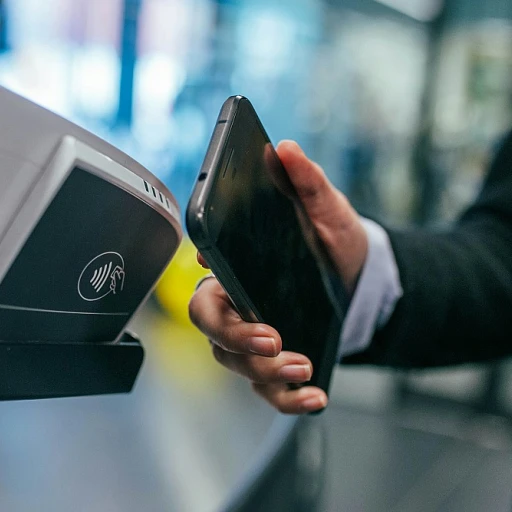
Understanding the Essence of Uncommon Brands
Unpacking the Distinct Nature of Niche Brands
The business landscape is peppered with brands that defy conventional classifications, and these entities are often referred to as uncommon brands. Unlike traditional players in the restaurant industry, uncommon brands carve out unique spaces, offering concepts that challenge the status quo. This uniqueness is the lifeblood that invigorates their strategies, allowing them to expand beyond standard operating norms and build lasting customer loyalty.
An exemplar worth considering is the world of Fuego Tortilla, a restaurant concept that has redefined the tortilla grill experience. This isn't merely about a different flavor; it's about constructing an environment and a price point that appeal distinctively to niche audiences. Social platforms like LinkedIn frequently highlight these differences as part of their branding stories, telling an uncommon brand story that connects emotionally and contextually with consumers.
Uncommon brands often adopt bold, innovative approaches. The price they set, the distinct language they use in their user agreements, and the unique restaurant concepts they build are all elements that distinguish them. This approach demands a coherent team—individuals aligned with the company’s objectives and who are proficient in navigating difficult industry challenges, such as those often faced by the restaurant brands operating under a holding company.
The process of strategic alliance development solidifies their position in the market. In these partnerships, uncommon brands might engage in collaborations with private equity firms, like Crux Capital, enhancing their real estate footprint, innovating new product lines, or refining their growth strategies.
In an era where consumer expectations are constantly evolving, the growth of uncommon brands requires a savvy blend of distinctive identity, scalable business operations, and an unwavering commitment to customer engagement. While some may view their journeys as unorthodox, these brands demonstrate that being uncommon can indeed result in triumphs across the industry.
Strategic Positioning for Uncommon Brands
Carving a Niche in a Competitive Market
In the realm of unusual and uncommon brands, strategic positioning is vital to capture a unique place in the market. These brands transform typical industry norms by becoming distinct, whether through innovative restaurant concepts, unique product offerings, or standout marketing approaches.
When a brand aims to position itself uniquely, several factors come into play:
- Product Differentiation: Distinctive products or services are essential and often serve as the cornerstone for growth and sustainability. This approach is prevalent in restaurant brands like Fuego Tortilla Grill or Velvet Taco, which present creative Tex-Mex selections that depart from traditional offerings.
- Target Audience: Uncommon brands meticulously define their audience, aligning their offerings and marketing to meet specific needs and preferences. This alignment helps in building a loyal customer base.
- Price Strategy: Instead of competing on price, these distinctive brands, such as those under a holding company, often emphasize quality or a unique value proposition, allowing them to command a premium price.
- Brand Identity: Crafting a strong identity resonates well in the marketplace. Engaging stories, cohesive visual aesthetics, and clear brand promises can create a memorable brand image.
To overcome the intense competition from conventional business models, uncommon brands often leverage connections, like those with Crux Capital or private equity partnerships, to gain valuable insights and secure necessary capital for expansion. It's essential they understand regional needs and collaborate with expertly placed partners in the market.
Moreover, exploring strategic alliances can amplify their brand's impact and help navigate complex industry environments through shared expertise and resources.
An unconventional yet strategic positioning helps these brands not only capture market share but also foster a unique identity that differentiates them from more mainstream competitors. The success of enterprises like Dutch Bros or niche restaurant industry players can be attributed to their compelling positioning, a robust team, and a well-articulated user journey. Ultimately, a successful uncommon brand thrives on its ability to adapt and evolve, all while maintaining a core identity.
Innovation as a Core Strategy
Fostering Forward-Thinking Expansion
Uncommon brands often find themselves in a unique position to drive innovation in their respective industries, deeply entwined with their strategic approach to growth. By designing distinct expansion strategies, these companies manage to differentiate themselves within saturated markets.
In the restaurant industry, brands like Fuego Tortilla Grill and Velvet Taco exemplify how creative concepts ignite customer loyalty. Their willingness to explore new culinary horizons demonstrates how pushing the boundaries can pay off by captivating their audiences. By integrating unique flavors and custom offerings, these brands successfully introduce something fresh to entice even the most discerning food enthusiasts.
However, not just creativity drives success. The price factor plays a significant role here, as it dictates how accessible these innovations are to target consumer segments. Balancing affordability with brand exclusivity is a challenge that necessitates astute business acumen.
Securing adequate capital remains a cornerstone for fostering novel ideas. Collaborations with private equity firms, like those involving Crux Capital, generate financial backing necessary for sustainable growth and development. Moreover, fostering a dynamic team that champions innovative thinking and harbors a growth mindset can significantly enhance brand impact and scalability in the marketplace.
Emphasizing innovation at a company level not only refines brand positioning but also drives industry forward. The strategic implications for companies aspiring for broad penetration in the fiercely competitive landscape are immense, which could always inspire a change in how businesses handle innovation today.
Challenges Faced by Uncommon Brands
Navigating the Hurdles
Uncommon brands often face a unique set of challenges that can impact their growth and sustainability in highly competitive markets. By understanding these challenges, businesses can better position themselves to overcome them and thrive.
The pressure to maintain a balance between innovation and tradition can be daunting for uncommon brands, particularly in the restaurant industry. Concepts like Fuego Tortilla Grill and others under a holding company must continuously evolve to stay relevant while preserving their unique identity. This requires a dedicated team that can execute strategic initiatives effectively and align with the company's vision.
Uncommon brands also face pricing challenges. They must determine how to position themselves in the market without alienating their target customers. This is particularly prevalent among brands that offer premium products at a higher price point yet want to maintain a loyal customer base. While competitive pricing is crucial, it should not come at the expense of quality and brand values.
The process of securing capital can also be a considerable obstacle. While private equity firms like Crux Capital offer potential investments, attracting such attention might require uncommon brands to shift their focus towards elements that investors find attractive, such as proven growth metrics or innovative restaurant concepts like Velvet Taco or Dutch Bros.
In addition, industry-specific challenges such as navigating real estate considerations for restaurant locations or adhering to the ever-evolving user agreement and privacy policy legislations also play a significant role. The Vice President or senior management team should proactively address these with strategic foresight to avoid operational disruptions.
Ultimately, uncommon brands must constantly refine their business models to withstand these challenges while continuing to stand out from the mainstream. Whether it's through innovative product offerings, strategic industry partnerships, or focused customer engagement efforts, brands need to be agile in their approach to sustain their unique identity and capture their share of the market. Leveraging support from platforms like LinkedIn helps in cultivating a community of brand followers and enhancing visibility.
Building a Loyal Customer Base
Fostering Devotion in a Distinctive Brand World
Building a loyal customer base is a cornerstone of success for uncommon brands. The secret lies in fostering authentic connections and offering unique experiences that set these brands apart. Customer loyalty in the restaurant industry, particularly for brands like Velvet Taco and Fuego Tortilla Grill, is shaped by several key strategies.- Unique Value Proposition: Uncommon brands must clearly communicate what makes their offerings stand out. For instance, a tex-mex restaurant concept may focus on using locally sourced ingredients to enhance flavors while maintaining a competitive price point. This clear differentiation can help the brand build a strong connection with its target audience.
- Community Engagement: Participation in local events or initiatives helps uncommon brands embed themselves within the community. Whether through partnerships with local real estate agencies or holding company events, these engagements nurture customer trust and loyalty.
- Personalized Experience: In an industry where customer satisfaction is paramount, tailoring experiences to individual preferences can bolster a sense of belonging. This could involve designing a user agreement that prioritizes customer privacy and adapting services based on customer feedback gathered from platforms like LinkedIn.
- Consistent Quality and Innovation: Customers are more likely to stay loyal to a brand that consistently delivers high-quality products while introducing innovative restaurant concepts. Whether it’s a new twist on an old favorite or a completely novel idea, maintaining a reputation for excellence is vital for growth.
- Engagement through Communication: Regularly updating followers and customers with enticing information about new offerings, promotions, or industry insights can keep the brand top-of-mind. Brands such as Dutch Bros leverage social media engagement to maintain a direct line with their audience.
Case Studies of Successful Uncommon Brands
Spotlight on Uncommon Successes
The landscape of uncommon brands is filled with intriguing examples that have effectively employed innovative strategies to carve out a distinctive niche. Consider the restaurant industry, where uncommon restaurant brands like Fuego Tortilla Grill and Velvet Taco have thrived despite intense competition. By creating unique restaurant concepts that appeal to specialized tastes, these brands have managed to upset traditional norms.
Fuego Tortilla Grill, for example, has capitalized on the Tex-Mex craze by offering authentic and flavorful products that set them apart from other restaurant brands. This strategic approach aligns with the brand's commitment to building a sustainable and unique business model, an embodiment of innovation as a core strategy.
Similarly, Dutch Bros has evolved from a humble coffee cart into a significant player in the beverage industry. Their approach emphasizes affordability and quality, allowing customers to enjoy premium products without the premium price tag. The company's dedication to maintaining a loyal fan base has been bolstered by leveraging social media platforms like LinkedIn to engage with users directly.
Uncommon brands often face challenges related to growth and scalability but have managed to overcome these by forming strategic partnerships. Consider Crux Capital and their vested interests in the growth of brands like Fuego Tortilla. By securing the needed capital and forming alliances with industries like real estate, they have expanded their unit footprint efficiently. High-level executives, often recruited through platforms showcasing private equity opportunities, bring expertise and insight needed for such ventures.
Success stories from these uncommon brands reinforce the importance of strategic positioning. Companies like Velvet Taco, while providing niche offerings, have aligned their products with market demands, thus avoiding common pitfalls by focusing on authentic brand experiences rather than mere distribution volume.
In essence, the journey of these brands serves as an excellent reference for others aiming to establish their unique market presence. By maintaining a firm grasp on innovation and adapting swiftly to industry trends, these businesses exemplify the potential rewards and challenges involved in managing uncommon brands.



-large-teaser.webp)









